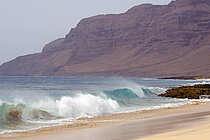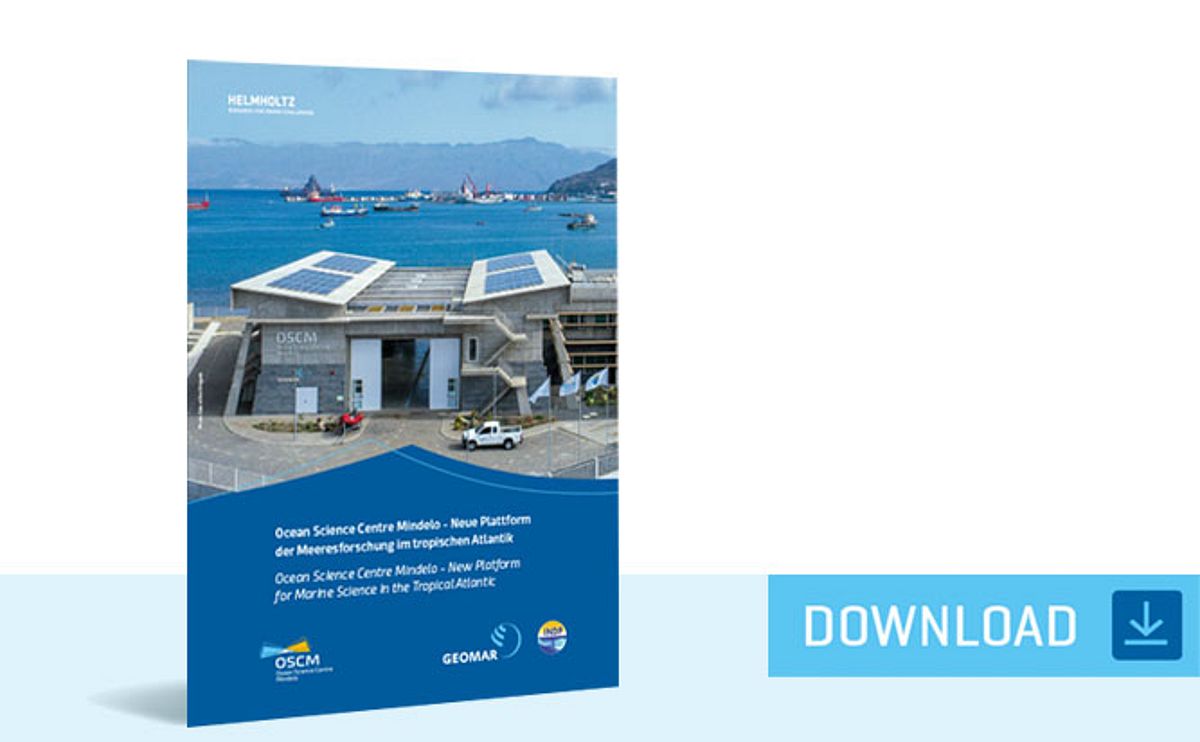Cordula Zenk
Cape Verde Coordinator at GEOMAR
Tel: +49 431 600-4209
E-mail: czenk@geomar.de

Bom dia Cabo Verde!
The Cap-Vert, the "Green Cape", near the Senegalese capital Dakar is generally considered the westernmost point of Africa. However, this only applies to mainland Africa, because 600 kilometers off the coast of Senegal, in the vastness of the Atlantic Ocean, lies another group of islands consisting of 15 islets, nine of which are inhabited: the Cape Verde Islands. Once a Portuguese colony, a transshipment point in the Atlantic slave trade and later a stopover for transatlantic steamship routes, the islands gained independence in 1975 together with Guinea-Bissau in West Africa. Since 1981, they have formed their own state: the Republic of Cabo Verde. Their history has given rise to a unique cultural mix of European and African influences. The Canary Islands, Madeira or the Azores are still better known as tourist destinations in the eastern North Atlantic. But the number of visitors to Cape Verde is increasing. These are not just vacationers. More and more marine researchers from all over the world are coming to Cape Verde to carry out work in this scientifically highly interesting region of the Atlantic.
More info about research in Cape Verde
Cape Verde - Scientific Hotspot in the Tropical Atlantic Ocean
The region offers a unique range of scientifically topical and highly relevant research topics: The tropics are a gigantic weather machine, producing energetic thunderstorms, tropical cyclones, high-yield monsoon rains, and prominent climate fluctuations such as the El Niño phenomenon. Here, the ocean usually plays a crucial role.
High-range convection in the tropics not only produces violent thunderstorms, it also ensures that reactive trace gases such as bromine and chlorine from the ocean reach the stratosphere at altitudes of around 15-50 kilometers, where they actively interfere with the dynamics of the natural ozone layer. Conversely, the atmosphere exerts an important influence on the biological productivity of the ocean via the input of enormous quantities of Saharan dust.
But significant processes are also at work in the ocean itself. For example, the ecosystem nourished by coastal upwelling off West Africa is among the most productive and economically important in the world. Underwater mountains in this region form centers of biodiversity in the ocean. At the same time, a hostile oxygen minimum zone extends inland from the ocean. Although it is not yet as pronounced as comparable systems in the Pacific or the Indian Ocean, it has shown a clear tendency to spread in recent decades, as research from Kiel has shown.
Last but not least, the Cape Verde Islands are also highly interesting from a geological and volcanological point of view, as they are also volcanic hotspots due to their location on a so-called "mantle plume". Recent work even proves the existence of explosive volcanism on the seafloor of the deep sea.
GEOMAR has been conducting research near Cape Verde for many years together with regional and international partners. Since 2017, the Ocean Science Centre Mindelo (OCSM) has been available to the international scientific community. Together with the Cape Verde Ocean Observatory (CVOO) and the Cape Verde Atmosphere Observatory (CVAO), the OSCM with its modern infrastructure serves as a multifunctional base for long-term observations and field research in the region of West Africa and the tropical Northeast Atlantic. In addition, the OSCM strengthens scientific exchange, university education and knowledge transfer in West Africa.
An inaugural visit consolidates cooperation in the region
A delegation of GEOMAR sets important course for further research and cooperation in the region during a visit on site
Music: Cold Funk by Kevin MacLeod Creative Commons — Attribution 4.0 International — CC BY 4.0 incompetech.com kevin@incompetech.com
With its visit to Cabo Verde, the Executive Board of GEOMAR Helmholtz Centre for Ocean Research Kiel paid its inaugural visit to the local partners, which had been postponed several times due to the pandemic. Diverse discussions consolidated the further cooperation in the region and strengthened the role of the Ocean Science Centre Mindelo (OSCM), which GEOMAR started in 2017 together with the Cape Verdean Instituto do Mar (IMar). The focus here is on regional networking, logistical and technological services, and academic training. In addition, GEOMAR Director Professor Dr. Katja Matthes was able to welcome the participants of the "Ocean Race Summit" at OSCM, a high-profile summit on the sustainable protection of the oceans.


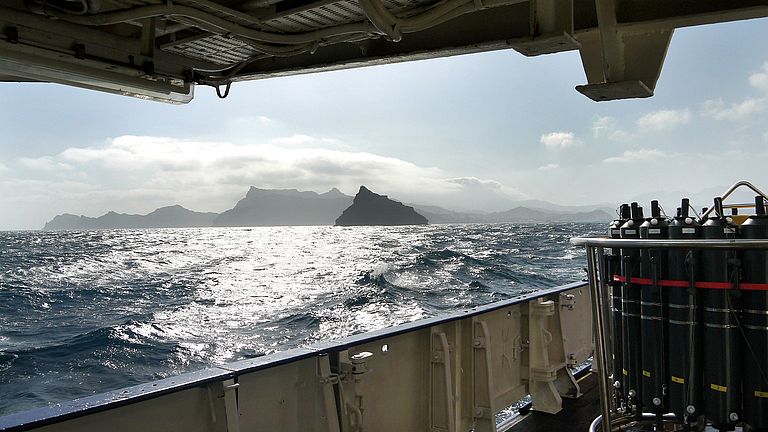
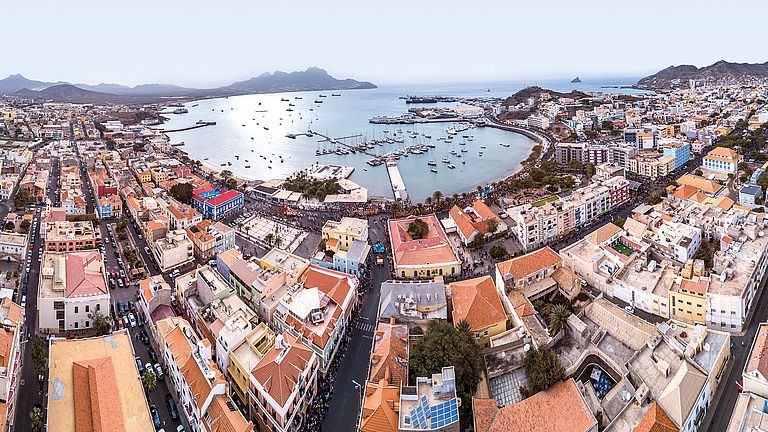
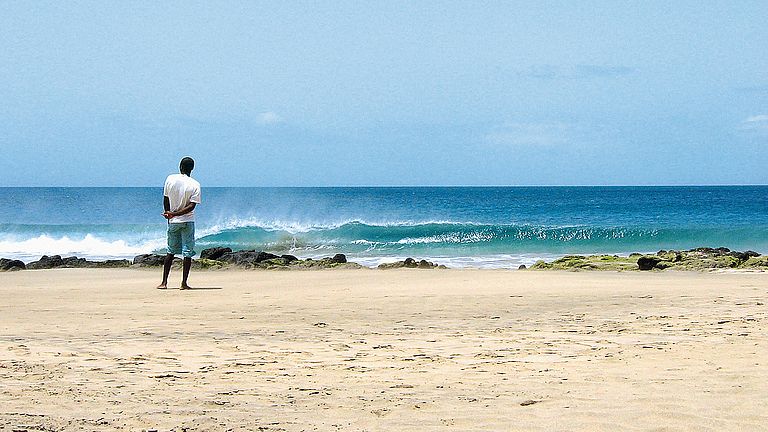
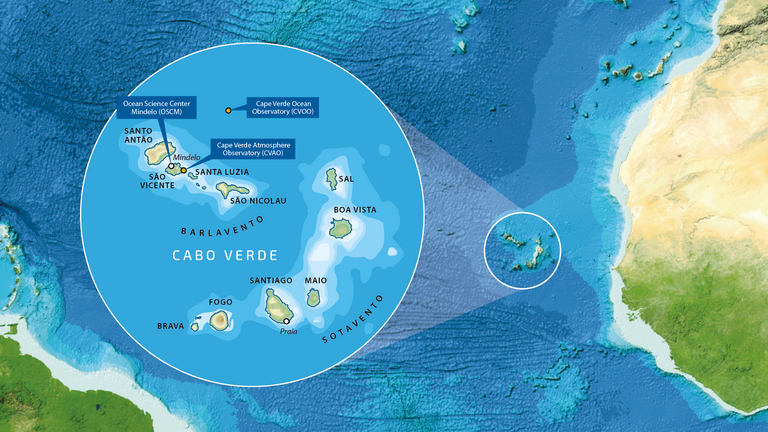
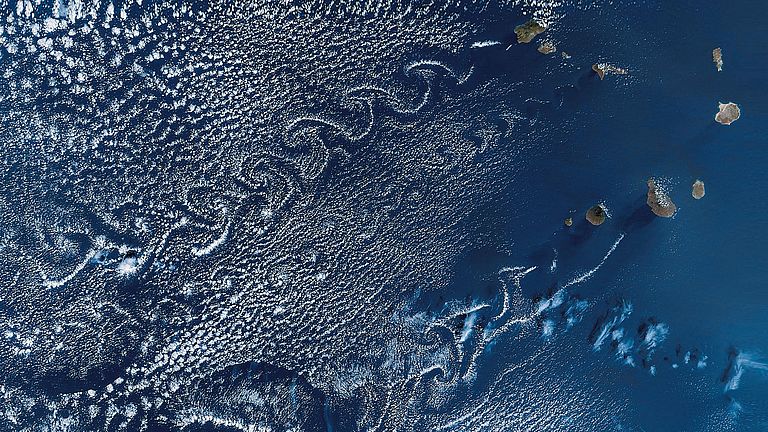
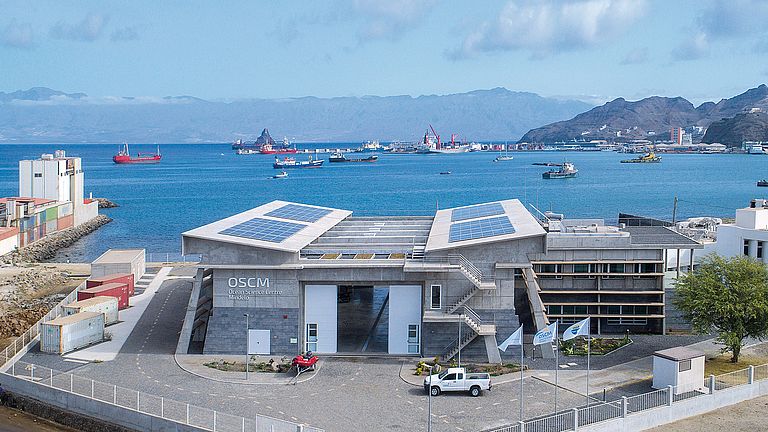
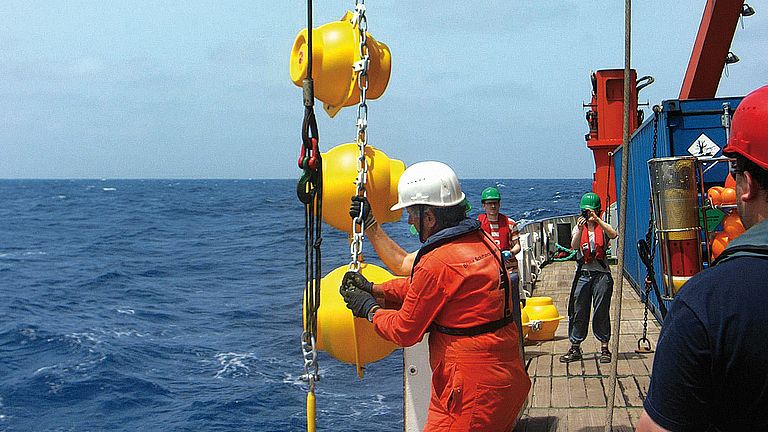
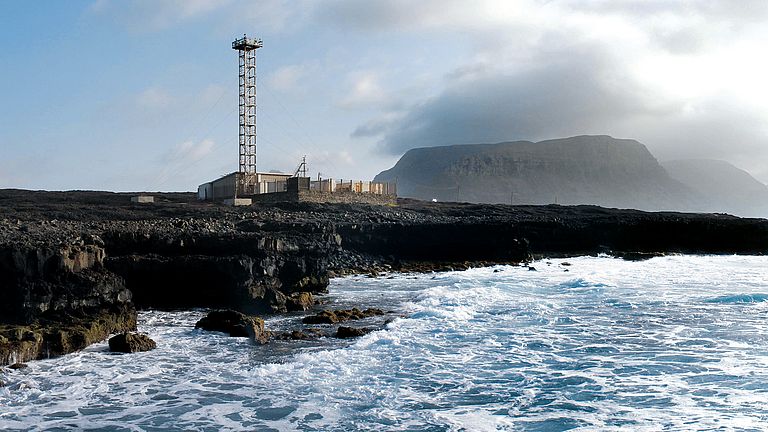
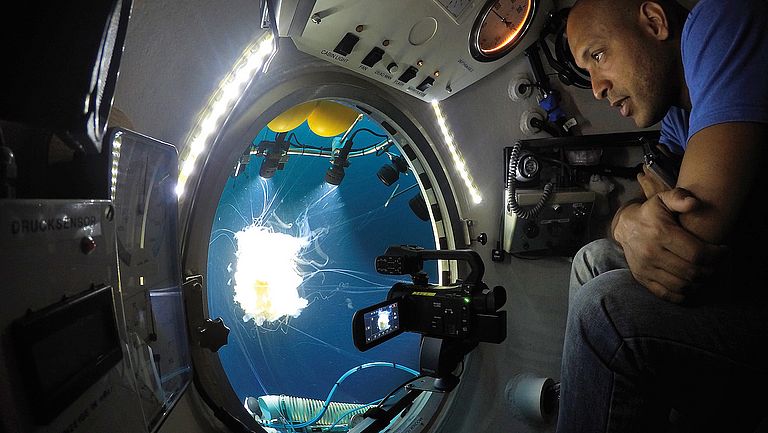
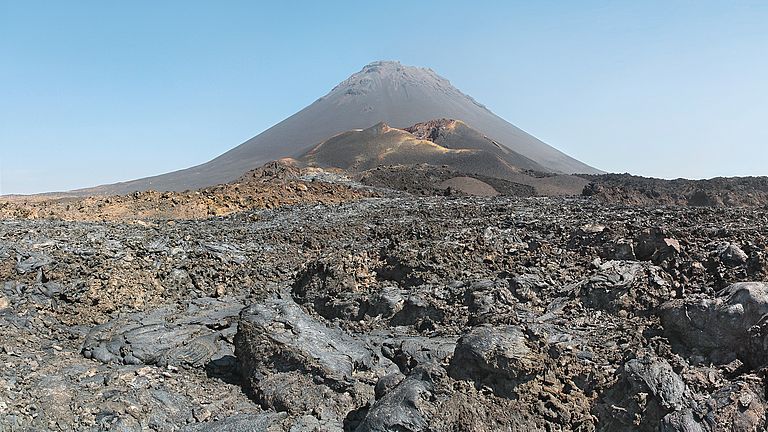
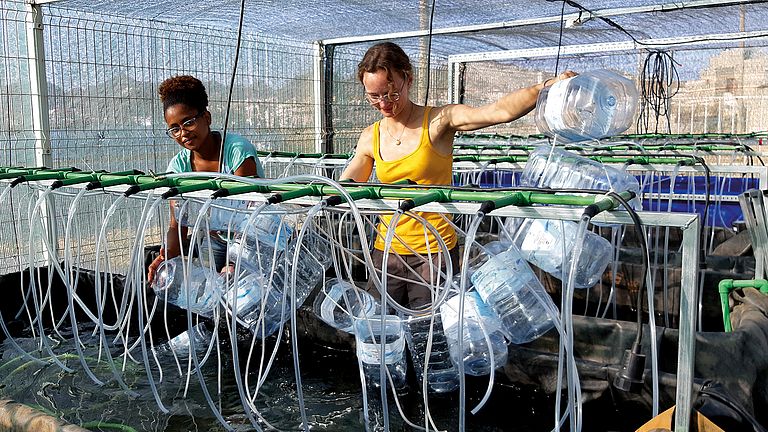
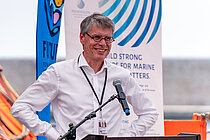
![[Translate to English:] People gather for a group photo, holding a banner in their hands.](/fileadmin/_processed_/a/4/csm_DSC09972_2025-11_FUTURO-Workshop-Senegal_c_Saly_Creativ-Lab_e385703b6c.jpg)
![[Translate to English:] On the left is an aerial view of Mindelo, where everything in the city is covered in mud. On the right is a car in your factory hall. The mud trail shows that the water must have been knee-high.](/fileadmin/_processed_/4/2/csm_InselUndAutoCollage_b341cb351e.png)

